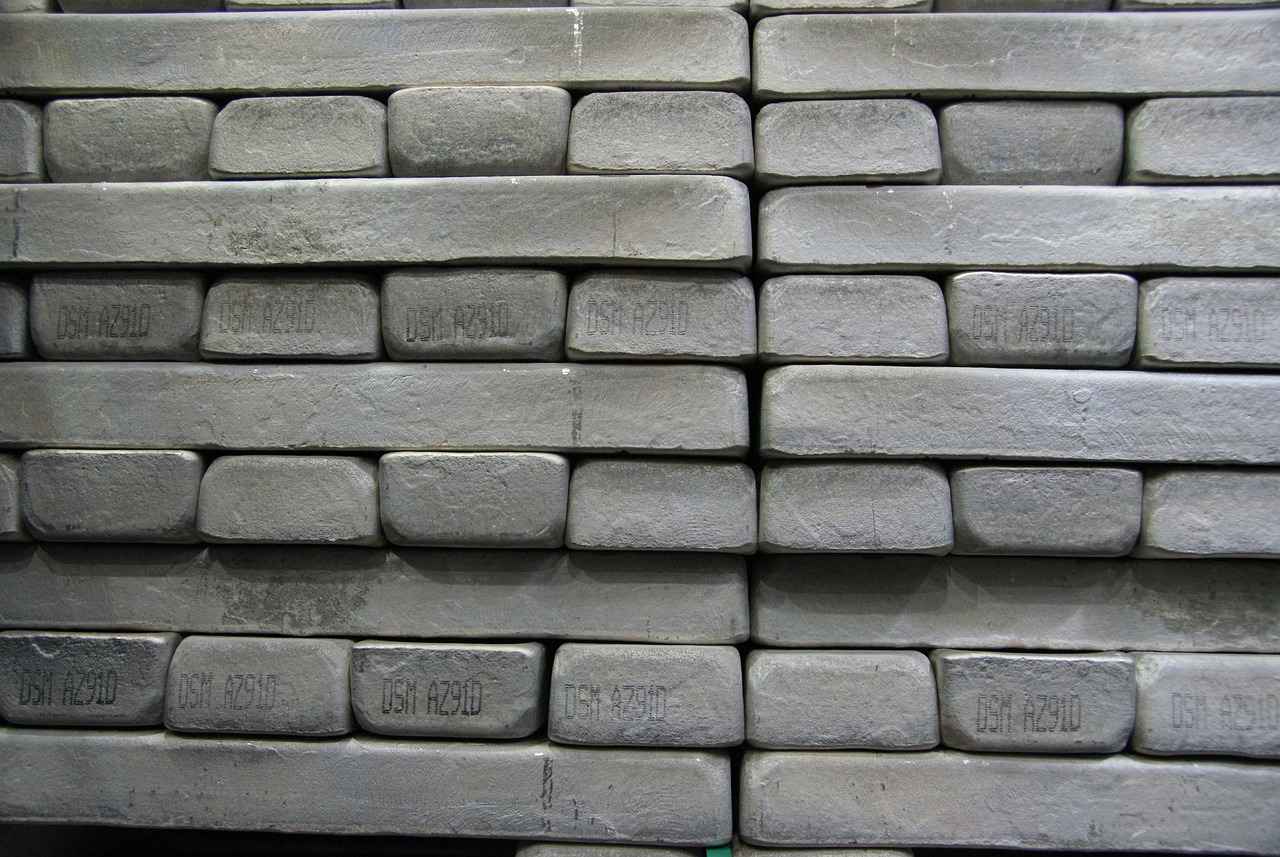This article delves into the remarkable benefits of activated charcoal, exploring its various uses in detoxification and its potential to enhance overall health and wellness. With a growing interest in natural remedies, understanding the science behind this powerful ingredient and its practical applications is more important than ever.
What is Activated Charcoal?
Activated charcoal is a specially processed form of carbon, designed to have an extensive surface area due to its small, low-volume pores. This unique structure makes it exceptionally effective for adsorption, allowing it to trap toxins and chemicals. The production of activated charcoal involves heating carbon-rich materials, such as wood, coconut shells, or peat, to very high temperatures, which alters its internal structure.
How Does Activated Charcoal Work?
Understanding how activated charcoal functions is essential to appreciate its benefits. It works by binding to toxins in the gastrointestinal tract, preventing their absorption into the bloodstream. This property makes it effective in various applications, from treating poisonings to alleviating digestive discomfort.
Medical Uses of Activated Charcoal
Activated charcoal has significant medical applications, particularly in emergency medicine. It is commonly used to treat cases of poisoning and overdose, illustrating its vital role in healthcare settings. In such situations, it can be a life-saving intervention.
Activated Charcoal for Digestive Health
Beyond emergency uses, activated charcoal is also known for its ability to alleviate digestive issues, such as bloating and gas. Many people find relief from gastrointestinal discomfort by incorporating activated charcoal into their wellness routines.
Beauty and Skincare Benefits
Activated charcoal has gained popularity in the beauty industry for its detoxifying properties. It is often found in face masks and cleansers, touted for its ability to draw out impurities and improve skin clarity.
Activated Charcoal in Oral Health
This ingredient is also praised for its potential benefits in dental care. Some studies suggest that activated charcoal may help whiten teeth and enhance overall oral hygiene, making it a popular choice in various dental products.
How to Use Activated Charcoal Safely
While the benefits of activated charcoal are numerous, safety should always be a priority. It is essential to follow guidelines regarding proper usage and dosage to avoid potential side effects.
Conclusion: The Future of Activated Charcoal
In conclusion, activated charcoal offers a wide range of health benefits, but it is crucial to approach its use with care and informed understanding. Ongoing research continues to explore its potential applications, ensuring that activated charcoal remains a relevant topic in health and wellness discussions.

What is Activated Charcoal?
Activated charcoal is a unique form of carbon that has undergone a special process to develop a vast network of tiny pores. These pores significantly increase the surface area of the charcoal, which enhances its ability to adsorb various substances. This remarkable characteristic makes activated charcoal a powerful tool in numerous applications, from medical treatments to beauty products.
The origins of activated charcoal date back to ancient civilizations where it was used for medicinal purposes. Its production involves heating carbon-rich materials, such as wood, coconut shells, or peat, in the absence of oxygen. This process, known as activation, creates a highly porous structure. The resulting activated charcoal can then be processed further, often through steam activation or chemical treatments, to enhance its adsorptive capabilities.
In modern times, activated charcoal has gained popularity for its detoxifying properties. It is widely recognized for its ability to bind to toxins and chemicals in the gastrointestinal tract, preventing their absorption into the bloodstream. This has made it a staple in emergency medicine, particularly for treating cases of poisoning or overdose.
Moreover, activated charcoal has found its way into the beauty industry. Many skincare products now feature this ingredient due to its ability to draw out impurities and excess oil from the skin. Face masks, cleansers, and even toothpaste containing activated charcoal have become increasingly popular among consumers seeking to enhance their skincare routines.
In summary, activated charcoal is not just a trendy ingredient; it is a versatile compound with a rich history and a wide range of applications. Its unique properties make it an invaluable resource in both health and beauty sectors, paving the way for ongoing research and innovation.

How Does Activated Charcoal Work?
Understanding the mechanism of activated charcoal is crucial for recognizing its potential benefits in detoxification and health enhancement. Activated charcoal is not merely a black powder; it is a highly porous substance that plays a significant role in binding toxins and chemicals, thereby preventing their absorption in the body.
When ingested, activated charcoal acts through a process known as adsorption. This is different from absorption; while absorption involves one substance being taken into another, adsorption occurs when particles adhere to the surface of a solid. The extensive surface area of activated charcoal allows it to attract and hold onto various harmful substances, including toxins, drugs, and gases.
Once activated charcoal binds to these unwanted materials, it forms a complex that is too large to be absorbed through the intestinal walls. Consequently, these harmful substances are expelled from the body during digestion, significantly reducing their potential impact on health.
Activated charcoal is particularly effective in various applications, including:
- Emergency Medicine: It is widely used in hospitals to treat cases of poisoning and drug overdoses, as it can quickly bind to toxins before they enter the bloodstream.
- Digestive Health: Many people use activated charcoal to alleviate symptoms of bloating and gas, as it can help remove excess gas from the digestive tract.
- Water Filtration: Its adsorption properties make it a popular choice for purifying drinking water by trapping contaminants and impurities.
In summary, the effectiveness of activated charcoal lies in its unique ability to bind with toxins and chemicals, preventing their absorption and facilitating their elimination from the body. This makes it a valuable tool in both medical and everyday applications, contributing to improved health and wellness.
Medical Uses of Activated Charcoal
Activated charcoal has gained prominence in the medical field, especially in emergency medicine. Its unique properties allow it to effectively treat cases of poisoning and drug overdoses, making it an invaluable tool in healthcare settings. This section will explore its mechanisms of action, applications, and guidelines for use, highlighting its critical role in saving lives.
When a person ingests a toxic substance, activated charcoal can be administered to adsorb the toxin, preventing its absorption into the bloodstream. This process is crucial, as it can significantly reduce the amount of poison that enters the body, thereby mitigating the effects of the toxin. The effectiveness of activated charcoal is particularly notable in cases involving certain types of drugs and chemicals, including acetaminophen, opioids, and pesticides.
In emergency situations, the timely administration of activated charcoal is essential. Medical professionals often follow specific protocols to determine when and how to use it. Generally, it is most effective when given within one hour of ingestion. However, it is important to note that activated charcoal is not suitable for all types of poisonings. For example, it is ineffective for substances like alkalis, heavy metals, and alcohol.
In addition to its use in poison control, activated charcoal is also employed in various medical treatments, such as gastric lavage and decontamination procedures. Its versatility extends beyond emergency care, as it is also used in managing intestinal gas and bloating, providing relief for patients suffering from digestive discomfort.
Overall, the role of activated charcoal in medical applications is significant. Its ability to bind to harmful substances and prevent their absorption underscores its importance in emergency medicine and beyond. As ongoing research continues to explore its full potential, activated charcoal remains a vital component of modern medical practice.
Activated Charcoal in Poison Control
In emergency situations, particularly those involving poisoning, the use of activated charcoal can be a life-saving intervention. This section outlines the critical protocols and guidelines surrounding its application, emphasizing its effectiveness in mitigating the effects of toxic substances.
Activated charcoal works by adsorbing toxins and preventing their absorption into the bloodstream. When administered promptly after ingestion of a poison, it can significantly reduce the amount of toxin available to the body. This is particularly crucial in cases of acute poisoning, where every minute counts.
| Protocol for Activated Charcoal Use | Details |
|---|---|
| Timing | Activated charcoal is most effective when given within 1 hour of poison ingestion. |
| Dosage | Typically, 1 gram per kilogram of body weight is recommended for adults and children. |
| Administration | It can be administered orally, but in cases of unconsciousness or severe agitation, it should only be given by trained medical personnel. |
| Contraindications | Activated charcoal should not be used in cases of corrosive poisonings or when the patient has a compromised airway. |
It’s important to note that while activated charcoal is effective, it is not a universal antidote. Medical professionals must evaluate each situation individually, considering factors such as the type of poison and the patient’s condition.
In conclusion, the timely administration of activated charcoal in cases of poisoning can be a critical factor in improving patient outcomes. Its role in emergency medicine cannot be overstated, and adherence to established protocols ensures that it is used safely and effectively.
Activated Charcoal for Digestive Health
Activated charcoal is not only a popular remedy for emergency situations but also serves as a beneficial aid for various digestive issues. Many individuals suffer from uncomfortable symptoms such as bloating, excessive gas, and other forms of gastrointestinal discomfort. This section delves into the numerous advantages of activated charcoal for digestive health, supported by expert insights and research findings.
One of the primary benefits of activated charcoal is its ability to adsorb gas and toxins in the gastrointestinal tract. When ingested, activated charcoal binds to these substances, reducing their absorption into the body and alleviating symptoms of bloating and flatulence. A study published in the American Journal of Gastroenterology highlights that patients who consumed activated charcoal reported significant improvements in their digestive comfort.
Furthermore, activated charcoal can help in cases of food poisoning or digestive distress caused by certain foods. By trapping harmful substances in the gut, it can provide relief and support the body’s natural detoxification processes. Experts recommend taking activated charcoal in moderation and ideally under the guidance of a healthcare professional to avoid potential interactions with medications.
In addition to its physical benefits, many users report a psychological boost from the relief of discomfort. The feeling of a settled stomach can enhance overall well-being and improve daily functioning. However, it is crucial to remember that while activated charcoal can be effective, it should not replace a balanced diet or healthy lifestyle.
In conclusion, activated charcoal offers a range of benefits for digestive health, particularly in alleviating symptoms like bloating and gas. Its ability to bind to toxins and improve gastrointestinal comfort makes it a valuable addition to digestive health regimens. Always consult with a healthcare provider before starting any new treatment to ensure safety and efficacy.
Beauty and Skincare Benefits
Activated charcoal has become a must-have ingredient in the beauty industry, particularly for its remarkable detoxifying properties. This natural substance is derived from carbon-rich materials that have been heated to create a porous texture, allowing it to effectively trap impurities and toxins. As a result, activated charcoal has found its way into various skincare products, including face masks, cleansers, and scrubs.
One of the primary benefits of activated charcoal in skincare is its ability to deep clean pores. By binding to dirt, oil, and other impurities, it helps to unclog pores, which can lead to a clearer complexion. Many users report a noticeable reduction in blackheads and acne after incorporating activated charcoal products into their routines.
Activated charcoal face masks are particularly popular, as they offer a spa-like experience at home. These masks not only cleanse the skin but also provide a refreshing sensation that can rejuvenate tired skin. Regular use of such masks can enhance skin texture and tone, making it appear more radiant.
In addition to face masks, activated charcoal is also found in various cleansers. These products are designed to gently exfoliate the skin while removing excess oil and makeup residue. The result is a cleaner, brighter face that feels revitalized.
Furthermore, the versatility of activated charcoal extends beyond just cleansing. Some skincare lines have introduced moisturizers and serums that incorporate activated charcoal, providing hydration while maintaining the detoxifying benefits. This dual-action approach ensures that the skin remains balanced and healthy.
In conclusion, the incorporation of activated charcoal into skincare routines offers numerous benefits, from deep cleansing to enhancing skin health. As consumers continue to seek natural and effective solutions, activated charcoal remains a popular choice for those looking to improve their skincare regimen.

Activated Charcoal in Oral Health
Activated charcoal has become increasingly popular in the realm of dental care, with many people turning to this natural ingredient for its purported benefits. This section will delve into how activated charcoal can aid in whitening teeth and enhancing overall oral hygiene, supported by scientific research and expert opinions.
One of the primary claims surrounding activated charcoal is its ability to whiten teeth. The porous nature of activated charcoal allows it to bind to stains on the teeth, effectively lifting them away. A study published in the Journal of the American Dental Association found that activated charcoal can reduce surface stains, leading to a brighter smile. However, it is essential to note that while some users report positive results, the American Dental Association advises caution, as excessive use may lead to enamel erosion.
In addition to its whitening properties, activated charcoal is also known for its ability to improve oral hygiene. It works by adsorbing bacteria and toxins in the mouth, which can contribute to bad breath and gum disease. Regular use of activated charcoal toothpaste or powders may help in maintaining a healthier oral environment. A review in Clinical Oral Investigations highlighted that activated charcoal could help reduce plaque formation, further supporting its role in oral health.
When incorporating activated charcoal into your dental care routine, it is advisable to use it in moderation. Overuse can lead to potential side effects, such as tooth sensitivity and enamel wear. It is best to consult with a dental professional before starting any new oral health regimen.
In conclusion, while activated charcoal shows promise in both teeth whitening and improving oral hygiene, it is crucial to use it wisely and seek guidance from dental experts. As research continues, activated charcoal may solidify its place as a valuable component in dental care products.
How to Use Activated Charcoal Safely
Activated charcoal is renowned for its numerous health benefits, but ensuring safety during its use is crucial. This section outlines essential guidelines regarding proper usage, appropriate dosage, and potential side effects that users should be aware of.
- Consult a Healthcare Professional: Before incorporating activated charcoal into your routine, it is advisable to consult with a healthcare provider, especially if you are pregnant, nursing, or have underlying health conditions.
- Recommended Dosage: The typical dosage for adults ranges from 500 mg to 1,000 mg per day, depending on the intended use. Always follow the instructions on the product label or those provided by your healthcare professional.
- Timing of Consumption: To maximize its effectiveness, activated charcoal should be taken at least two hours before or after other medications or supplements, as it can interfere with their absorption.
- Hydration is Key: When consuming activated charcoal, it is important to stay well-hydrated to prevent constipation, a common side effect associated with its use.
- Be Aware of Side Effects: While generally safe, some individuals may experience side effects such as nausea, vomiting, or constipation. If any adverse reactions occur, discontinue use and consult a healthcare professional.
By adhering to these guidelines, users can enjoy the benefits of activated charcoal while minimizing potential risks. Remember, safety should always be the priority when exploring new health supplements.
Environmental Impact of Activated Charcoal
The production and use of activated charcoal raise significant environmental concerns. As its popularity grows in various industries, including healthcare, beauty, and food, it is essential to examine the sustainability of its sourcing and the overall ecological footprint of activated charcoal products.
Activated charcoal is typically derived from carbon-rich materials such as wood, coconut shells, or peat. The process of activation involves high-temperature treatment, which not only enhances its adsorptive properties but also contributes to its environmental impact. Unsustainable harvesting practices can lead to deforestation and habitat destruction, particularly when sourcing from vulnerable ecosystems.
Furthermore, the production of activated charcoal often requires substantial energy consumption, contributing to greenhouse gas emissions. To mitigate these effects, it is crucial for manufacturers to adopt environmentally friendly practices, such as utilizing waste materials or byproducts from other industries as raw materials for activated charcoal production.
Another aspect to consider is the disposal of activated charcoal products. While many consumers may be unaware, improper disposal can lead to soil and water contamination. Education on responsible disposal methods is vital to minimize the environmental impact of used activated charcoal products.
| Environmental Concerns | Possible Solutions |
|---|---|
| Deforestation | Sustainable sourcing from certified suppliers |
| High energy consumption | Utilization of renewable energy sources |
| Improper disposal | Public education on disposal practices |
In conclusion, while activated charcoal offers numerous benefits, it is imperative to address its environmental implications. By prioritizing sustainable sourcing and responsible production methods, we can enjoy the advantages of activated charcoal while minimizing its ecological footprint.

Conclusion: The Future of Activated Charcoal
As we look towards the future of activated charcoal, it is evident that this remarkable substance will continue to evolve in its applications and benefits. The ongoing research into its properties suggests that there are many more uses yet to be discovered. While activated charcoal has established its place in various sectors such as medicine, beauty, and environmental science, the potential for new applications remains vast.
One of the most promising areas of research is in the field of healthcare. Scientists are exploring its efficacy beyond traditional uses, such as in detoxification and poison control. For instance, studies are investigating its role in reducing cholesterol levels and improving gut health. The ability of activated charcoal to bind to toxins may also lead to innovative treatments for various diseases, potentially transforming how we approach certain health issues.
In the realm of beauty and skincare, the popularity of activated charcoal continues to rise. New formulations are being developed that leverage its detoxifying properties to enhance skin health. This includes products aimed at treating acne and other skin conditions, with ongoing research backing their effectiveness.
Moreover, the environmental impact of activated charcoal production is another critical area of focus. There is a growing emphasis on sustainable sourcing and eco-friendly production methods. As consumers become more conscious of their environmental footprint, the demand for responsibly sourced activated charcoal is likely to increase.
In summary, while activated charcoal presents a multitude of health benefits, it is crucial to approach its use with caution and informed understanding. Continued research and innovation will shape its future applications, making it an exciting area to watch for advancements in health and wellness.







